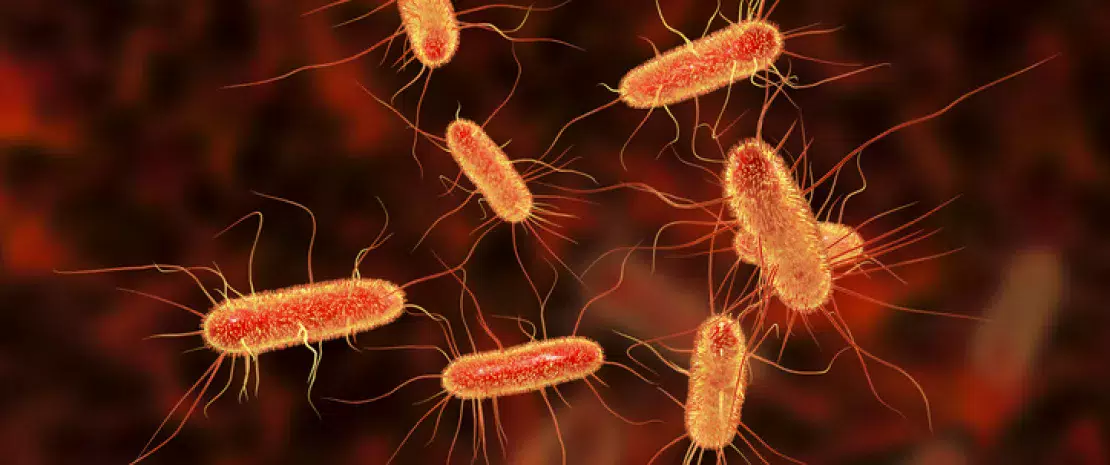Mutational signature of E. coli in colorectal cancer
A team has recently proved how certain genotoxic strains of Escherichia coli damage DNA, leading to an increased risk of colorectal cancer. In the future, will it be possible to curb this process?
Lay public section
Find here your dedicated section
Sources
This article is based on scientific information

About this article
While various species of the gut microbiota are linked to colorectal cancer (CRC), a direct role of bacteria in the onset of carcinogenic mutations has not been demonstrated yet. For example, certain bacteria, including genotoxic strains of E. coli, are more commonly found in the feces of CRC patients than in those of healthy subjects (60% vs 20%). These bacteria carry a DNA unit called pks (polyketide-nonribosomal peptide synthase operon) that encodes enzymes for synthesis of colibactin, a toxin capable of damaging DNA.
An ex vivo signature...
Through repeated luminal injections over five months, a group of researchers exposed human intestinal (sidenote: Organoids Organoids are new ex vivo models of organs, halfway between in vivo models and in vitro cell cultures. The stem cells or partially differentiated cells from which they are obtained spontaneously self-organize into functional tissue in an adapted three-dimensional environment ) to genotoxic E. coli (pks+ E. coli). Sequencing of the organoid genome before and after this exposure showed that colibactin induces a mutation (recombination between the two DNA strands) at a very specific location in the genome. This mutation was then “corrected” (i.e. resolution) by the cells of the organoid via single base substitution (SBS) or insertion/deletion (ID), based on recognizable patterns. These two types of resolution, called SBS-pks and ID-pks, are not observed in organoids exposed either to non-genotoxic E. coli strains or to a simple dye. Therefore, they represent the signature of an exposure to pks+ E. coli.
...confirmed in humans
It remained to be seen whether SBS-pks and ID-pks signatures were present in human tumors. Based on data from more than 5,000 tumors covering dozens of different types of cancer, both signatures are much more commonly found in CRC-derived metastases than in any other cancer type. Moreover, an analysis of seven cohorts of CRC patients showed that 2.4% of the mutations that most frequently lead to CRC were colibactin-induced. Many of these mutations affected the APC gene, which prevents uncontrolled cell proliferation.
A way to prevent CRC?
Another team had previously found these signatures in the colonic crypts of healthy individuals. This suggests that mutagenesis takes place in the healthy colon of individuals who harbor genotoxic strains of pks+ E. coli, increasing the risk of CRC. This cohort also included a few cases of urogenital cancer and head and neck cancer displaying pks signature, which suggests that pks+ E. coli may also act outside the colon. Accordingly, the detection and suppression of pks+ E. coli, as well as the reevaluation of pks-carrying probiotic strains, may reduce the risk of cancer in a large number of individuals.






